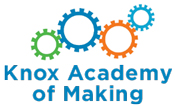By Scott Morris
It was common to hear from my grandfather’s generation this phrase, “I want my children to have a better life than I had.” Why don’t we hear parents say that about our generation? It isn’t said anymore because it was understood that the phrase “have a better life” really meant “have a better life with lots of money.” Now while we cannot fault our grandparents for their desire for their children and grandchildren to have material comforts, there was an interesting coinciding explosion of wealth from their generation.
It was right about 1950, as America was coming out of the war. While the world was recovering from devastating destruction to infrastructure, the US was uscathed. No factory had been lost, no roads, and no suburbs. American soldiers went almost directly back to their jobs where they had been before and without the international competition. American factories flourished. American wealth flourished. Even in poverty we have more wealth than ever before, perhaps in the history of the world. And yet the studies show that we feel poor. This idea of feeling poor without actually being poor even has a phrase to describe it: “relative poverty.”
We see this wealth as a great lie, and the lie is worse because it has been tied to education. We tell ourselves that if we really want to make it in life we need to get an education, that if we want to have the house and the car that we desire, we need to have the college degree. We tell ourselves that without the degree we cannot accumulate the necessary wealth to meet some arbitrary standard.
This is a lie. Studies show that even great accumulations of wealth only temporarily make one happy. Dan Gilbert, the great psychologist, compared the happiness levels of quadriplegics with that of recent lottery winners. Perhaps unsurprisingly, he found that the happiness levels between the two groups differed greatly just after their life changing events. Surprisingly, after a short time, their stated happiness levels were the same. Those suffering the tragedy of losing limbs stated the same amount of happiness as the millionaire.
While education can help one to gather wealth, true education comes through our interactions with others, our interest in the world, our curiosity for things, our ability to overcome challenges, our search for truth. When we seek these things instead of simply a score on the next standardized tests, our education has a purpose and a direction. Why not learn history in the context of building a playground for a poor community in Mexico? Why not learn math while trying to understand how to get a rocket out of earth’s gravitational pull? Why not learn to write by sharing a presentation with a group of your peers about something that you care about?
More and more we see our neighbors and our neighbor’s kids simply not caring about much in this world, even while accumulating the wealth that their education told them would make them happy. We see students get perfect scores, answer the right questions, take the right tests and even get into the right universities. But then they can’t tell you what they like to study, what job they want, nor what good they have done in in their communities. The system has told them to jump the hurdles and they have jumped. No wonder we have a society full of depressed people. One way to define depression is doing the same thing over and over without any satisfying results. Yet if you were to ask a student what they like to do and not what they want to be, they almost always have an answer, albeit an answer that doesn’t satisfy our current coercive systems that leaves little room for creativity and almost no room for free thought.
We can and must do better.
